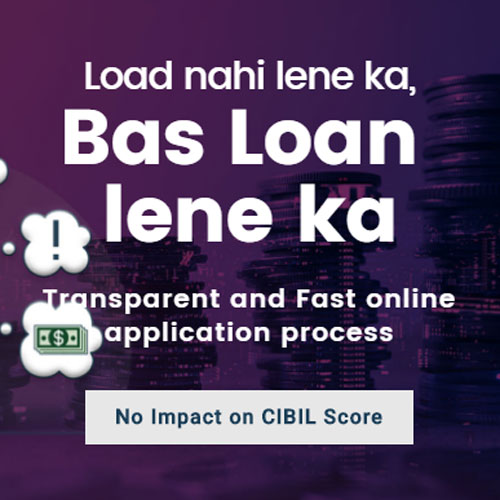Home Loan Eligibility Calculator
Home Loan Eligibilty Criteria
| Home Loan Eligibility Factors | Home Loan Eligibility Criteria |
|---|---|
| Age | Minimum: 18 yrs. Maximum: 70 yrs. (depending on type of employment) |
| Minimum Net Annual Income | Rs. 5 – 7 lakhs depending on type of employment, EMIs offered up to 50% of net income, on average |
| Type of Employment | Salaried, Salaried Professional, Self Employed Business, Self Employed Professional, Student, Retired, and Homemaker |
| Status of Employment | Regular: at least 1 yrs. in current job/business/profession.; at least 2 yrs. of prior employment |
| Type of Residence | Owned/ Rented |
| Status of Residence | At least 1 yr. at current place of stay |
| Credit Rating | Good rating as per recognised credit bureau |
| Type of property being purchased | Affects loan amount eligibility |
Note:
- Loan eligibility criteria differ for each banks/lender.
- Approvals are based on borrowers’ incomes, credit profiles and existing relationships with the bank.
Documents Required for Applying Home Loan:
- Signed application, photographs affixed
- Identity Proof: Passport/ Voter ID / PAN Card
- Residence Proof: Passport/ Voter ID/ Driving License/ Water Bill/ Electricity Bill/ Lease agreement
- Income Proof:
- Salaried individuals – Latest Salary Slips (3 months)/ Current Salary Certificate
- Self-employed persons – Latest bank Statements (3 – 6 months)/ Audited financial statements
- Tax Proof:
- Salaried individuals – Latest Form 16
- Self-employed persons – Latest ITR Form
- Employment Proof:
- Salaried individual – Employment certificate
- Self-employed persons – Legal documents pertaining to establishment of the business/profession e.g. MOA/ Partnership Deed etc.
- Property Documents
- Processing Fee Cheque
- Co-applicant’s (if any) documentation
Note: Supporting documents vary according to lender requirements:
Axis Bank Home Loan Eligibility Criteria:
- The age of applicants can range between 24 years and 65 years.
- The minimum amount of loan that an applicant can avail with Axis home loan is Rs.5 lakh. The maximum home loan that can be availed stands at Rs.10 crore.
- The minimum work experience for self-employed applicants must be 2 years.
- If the applicant is eligible for Axis Bank home loan, he/she will be able to enjoy a tenure ranging between 1 year and 30 years.
PNB HFL Home Loan Eligibility Criteria:
- The age of the applicants can range between 23 years and 70 years.
- The minimum loan amount that the applicant can borrow is Rs.5 lakh.
- The tenure offered by PNB HFL home loan ranges between 1 year and 30 years.
HDFC Home Loan Eligibility Criteria:
- The age of the applicants can range between 21 years and 60 years.
- The minimum loan that the applicant can avail is Rs.5 lakh and the maximum loan that can be availed stands at Rs.10 crore.
- The tenure of HDFC home loan ranges between 1 year and 30 years.
SBI Home Loan Eligibility Criteria:
- The age of the applicants can range between 18 years and 70 years.
- the tenure offered by SBI home loans range between 1 year and 30 years.
ICICI Home Loan Eligibility Criteria:
- The age of the applicants can range between 21 years and 65 years.
- The minimum loan that can be availed with ICICI home loan is Rs.5 lakh and the maximum loan amount that can be availed stands at Rs.10 crore.
- If the applicant is eligible for the loan, he/she can avail tenures ranging between 3 years and 30 years.
Top 6 Factors Affecting Home Loan Eligibility
1) Age: Age is the first and foremost factor a lender/ financier considers when one applies for a housing loan. Normally, financial institutions attempt to limit the house loan term to the primary applicant’s age of superannuation. This means young professionals (20s and early 30s) can avail a loan with a term of up to 25 years with no trouble. But older applicants especially those beyond 40 can find it a tad tough to be eligible for an extended tenure. Many a time, single applicant aged 50 and above were denied home loans purely on this basis.
2) Income: Let us categorize this into salaried, professional and self-employed. Whichever category the applicant falls into, a steady and regular source of income is must. Basically, there are fewer risks in loaning money if the applicant is an earning individual.
- Salaried Individual: If you are working for any government department or at any registered private company, you belong to this group. Most banks insists that the applicant should have completed at least one year in the present firm at the time of application. Pay slips, Form 16, bank statements and employer reference letter are the documents almost all lenders demand. Proofs for the same is needed for co-applicant and guarantor too (if applicable).
- Independent Professionals: Doctors, dentists, architects, engineers, management consultants, chartered accountants, freelance workers etc. belong to this category. Bank statements and ITR papers have to be submitted.
- Self Employed: Do you have your own company/ business? Or do you have other source of income like rented properties or hold shares? Then you belong to this category. If you have bank statements and tax-related papers to show, you can certainly apply for a home loan.
3) Rate of Interest: Home finance eligibility is always inversely proportional to the rate of interest. If the rate is more, eligibility will be less and vice-versa.
4) Loan Term: If you opt for a longer tenure, your eligibility will improve. EMIs too will lesser and manageable. But the downside to this is, you will end paying more interest.
5) Outstanding Loan(s): Indian banks and financial institutions always recommend keeping the EMI to Income Ratio between 50 or 60 percent. This is to leave window for future loans or to pay of existing loans if any. But unsettled loans could be a great damper on your eligibility.
6) CIBIL Report: Banks also scrutinize your credit repayment history from CIBIL (Credit Information Bureau India Limited), which is country’s regulator and first credit information bureau. They keep detailed records of every info regarding credit history relation between you and lenders/ creditors. A negative entry can bring down your eligibility significantly.
7 Tips to Increase Your Home Loan Eligibility
Eligibility is not an easy thing to assess. The banks and lenders will be considering your present liabilities, income, assets, etc. while calculating your home loan eligibility. In case the mortgage requirement is slightly higher that the eligible loan amount, some changes in the way you present yourself can help in increasing the eligibility factor. Tips to increase your eligibility for a home loan are mentioned below:
- Clearing Existing Loans: Ensure that you pay diligently towards your credit card outstanding or personal loan instalments. These can make the lender reject your application. The ideal thing to do is clear all dues and collect a no-due certificate before applying for a home loan. Ensure that your CIBIL report reflects these payments when you apply for home loan.
- Variable Pay: Ensure that you keep track of the variable pay that you get with your salary package. Calculation of eligibility towards a home loan also depends on this factor.
- Rental Income: If you have a house that is not being used by you, lease it out. The money that you earn as rental from this property can be used by you to show additional income source when you apply for a home loan. Your loan value can easily be enhanced by adding the rental income with our regular earnings.
- Increase in Tenure: The tenure of the home loan and the eligibility factor are directly proportional to each other. The eligibility increases upon increasing the tenure of the home loan. However, the maximum tenure that can be availed at present stands at 30 years.
- Income of the Spouse: In case your spouse has a regular source of income, then applying for a joint home loan can prove to be advantageous. The home loan eligibility goes up dramatically if you apply for a home loan with your spouse. This also suggests that both of you will have to repay the loan together.
- Take the Time You Need: Before making an application for a home loan, it is advisable that you take a look at your credit score. Look for errors on your report. In case, you find an error, ensure that it gets cleared by CIBIL. In order to get a loan quickly, do not apply with multiple lenders. Instead, find out the offers that you can get from different lenders. If the CIBIL score that you have is good, different lenders will be more than satisfied to offer the loan amount to you. Before you choose your lender, speak to an existing customer of that lender. Easy schedule of repayment, competent rates of interest and good services are the things to look at while choosing a lender.
- Step up Loans: Step up loans can be considered by you if you wish to increase your home loan eligibility factor. This is a great option for people face a lot of struggle initially, but get rewarded as they get established. Example – Chartered Accountants and Doctors. Under step up loans, lower EMIs will be offered with the loans. The instalments will go up gradually in the future.





